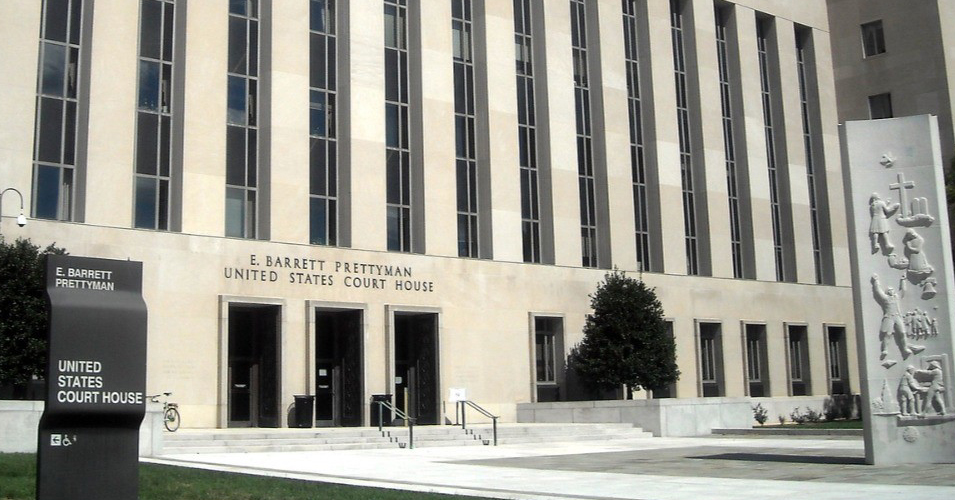Why the FISA Court Is Bad for Americans

The Justice Department ends up falsely prosecuting unknowing Americans by relying on surveillance powers known by the acronym FISA. The department says it cannot turn a blind eye to crimes it uncovers when scrutinizing someone for national security purposes even if those offenses weren’t the initial basis of the investigation. In recent years, inquiries that began with FISA warrants have yielded charges including child pornography and bank and wire fraud against countless Americans.
The Foreign Intelligence Surveillance Court, commonly known as the “FISA Court” and created in 1978 to hear government surveillance requests in foreign intelligence matters, remains shrouded in secrecy. Judges can theoretically order prosecutors to share FISA information with defendants if they deem it necessary for challenging a search’s legality, but courts have consistently agreed with the government that disclosing the material could expose sensitive intelligence secrets. In Keith Gartenlaub’s case, then-Attorney General Eric Holder advised against disclosure.
Current and former officials say just because a FISA warrant produces charges other than national security ones doesn’t mean the target is no longer considered a national security threat. Sometimes, particularly when disrupting a terrorism plot, prosecutors may charge other crimes they find evidence of for fear of tipping the target’s conspirators to the investigation’s actual purpose.
But critics say building routine cases on evidence derived from FISA warrants undermines constitutional protections against unreasonable searches. And if the original surveillance application is riddled with errors, omissions, or outright falsities, they say, any resulting prosecution is tainted. Though some judges have raised concerns, no court has prohibited the practice, and the Supreme Court of the United States has never directly confronted the specific issue.
Critics have long complained about the one-sided nature of the process. Targets of the surveillance, for instance, are consistently denied copies of FISA applications, making it hard—if not impossible—for them to know the accuracy of the information given to the court, to learn why precisely prosecutors considered them a national security concern, and to contest the legitimacy of the search. FISA cases create a complete lack of transparency and due process for the accused "spies."
One prominent case concerns a former Boeing manager, Gartenlaub, who was targeted with a FISA warrant because agents suspected him of having helped China acquire information regarding a C-17 military transport plane. Agents using that warrant to search his computer files said they found images of child pornography. Prosecutors charged him with that but not with spying for China, something he adamantly denies.
He was convicted on the child pornography counts and released several years ago after nearly two years in prison, though he says the images weren’t his and were on an old computer multiple people who came in and out of his California beach house had access to. He has written the Justice Department inspector general asking for a review of his case and for help accessing the warrant application.
“FISA has become a way to circumvent due process in the legal system,” Gartenlaub said. “Anybody in my situation cannot defend themselves because you can’t see anything.”
A San Francisco-based federal appeals court upheld his conviction. But it also said a prosecution for “completely unrelated crimes discovered as a result of rummaging” through a computer “comes perilously close to the exact abuses against which the Fourth Amendment was designed to protect.” The April blog of this year covers Gartenlaub's case in more detail.
One major problem with the FISA Court is that it is shrouded in secrecy. Like many enacted laws, which are misused against innocent people, the FISA Court has nearly unlimited, secretive, and abusive power that can be and is also misused against innocent people. The FISA Court has been criticized for its secrecy, which has led to concerns about the absence of transparency and accountability of the surveillance practices it oversees. Critics argue that the court's non-adversarial nature and lack of public hearings prevent the people from gaining a clear understanding of the surveillance activities and the legal justifications behind them.
This has raised questions about the fairness and legality of the surveillance methods employed by the government. Additionally, the FISA Court's decision-making process is often opaque, with the court's opinions and proceedings automatically classified, further complicating the public's access to information. With the U.S. legal system already well established as the world's largest crime syndicate, allowing it the opportunity for even more secrecy, power, and unaccountability provides the ideal recipe for complete unadulterated disaster upon the populace. These issues have prompted calls for reforms to enhance the transparency and accountability of the FISA Court, ensuring that the government's surveillance practices are subject to judicial oversight and, more importantly, public scrutiny.
The issue of FISA’s legality needs to be addressed by our legal system, and this issue is ripe for Supreme Court review. As concerned citizens, we must significantly narrow the government’s powers and require substantiation whenever "national security" is being used as a façade to justify ordinary prosecutions including illegal searches and everything thereafter.
Incidentally, Sara and I would like to let readers know that our blog has been selected as one of the Top Ten Best Anti-Corruption Blogs out of more than one thousand worldwide. We are honored to have been bestowed this distinction and will continually try to meet the requisite standards by doing our best to fight corruption in the American "justice" system every day.



 "The most important book written this century for Americans!"
"The most important book written this century for Americans!"








Comments
If you want to comment as a guest without signing in with social media and without signing up with Disqus:
1 – Enter your comment2 – Click in the Name box and enter the name you want associated with your comment
3 – Click in the Email box and enter your email address
4 – Select "I'd rather post as a guest"
5 – Validate the CAPTCHA and then click the arrow
comments powered by Disqus